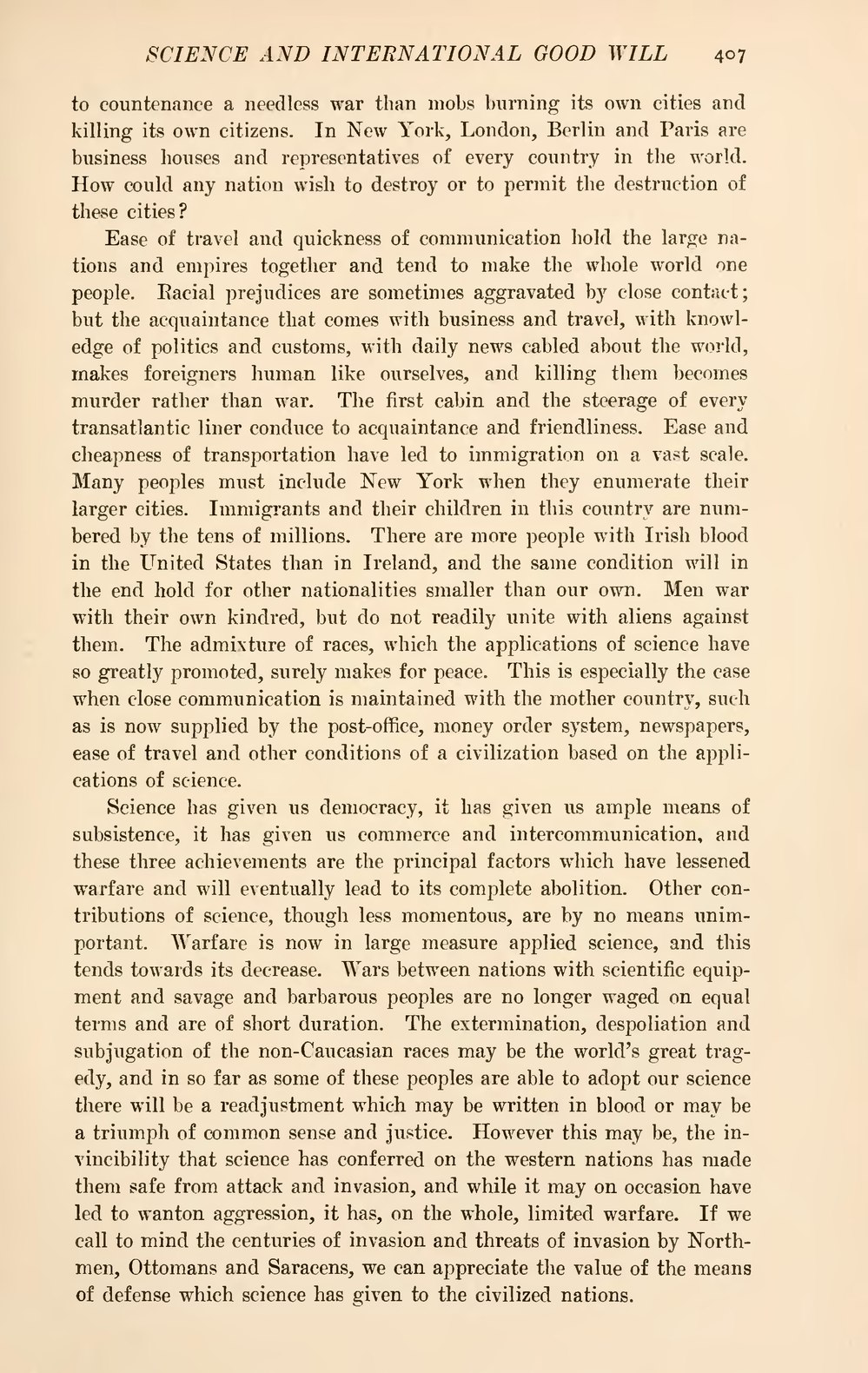to countenance a needless war than mobs burning its own cities and killing its own citizens. In New York, London, Berlin and Paris are business houses and representatives of every country in the world. How could any nation wish to destroy or to permit the destruction of these cities?
Ease of travel and quickness of communication hold the large nations and empires together and tend to make the whole world one people. Racial prejudices are sometimes aggravated by close contact; but the acquaintance that comes with business and travel, with knowledge of politics and customs, with daily news cabled about the world, makes foreigners human like ourselves, and killing them becomes murder rather than war. The first cabin and the steerage of every transatlantic liner conduce to acquaintance and friendliness. Ease and cheapness of transportation have led to immigration on a vast scale. Many peoples must include New York when they enumerate their larger cities. Immigrants and their children in this country are numbered by the tens of millions. There are more people with Irish blood in the United States than in Ireland, and the same condition will in the end hold for other nationalities smaller than our own. Men war with their own kindred, but do not readily unite with aliens against them. The admixture of races, which the applications of science have so greatly promoted, surely makes for peace. This is especially the case when close communication is maintained with the mother country, such as is now supplied by the post-office, money order system, newspapers, ease of travel and other conditions of a civilization based on the applications of science.
Science has given us democracy, it has given us ample means of subsistence, it has given us commerce and intercommunication, and these three achievements are the principal factors which have lessened warfare and will eventually lead to its complete abolition. Other contributions of science, though less momentous, are by no means unimportant. Warfare is now in large measure applied science, and this tends towards its decrease. Wars between nations with scientific equipment and savage and barbarous peoples are no longer waged on equal terms and are of short duration. The extermination, despoliation and subjugation of the non-Caucasian races may be the world's great tragedy, and in so far as some of these peoples are able to adopt our science there will be a readjustment which may be written in blood or may be a triumph of common sense and justice. However this may be, the invincibility that science has conferred on the western nations has made them safe from attack and invasion, and while it may on occasion have led to wanton aggression, it has, on the whole, limited warfare. If we call to mind the centuries of invasion and threats of invasion by Northmen, Ottomans and Saracens, we can appreciate the value of the means of defense which science has given to the civilized nations.

